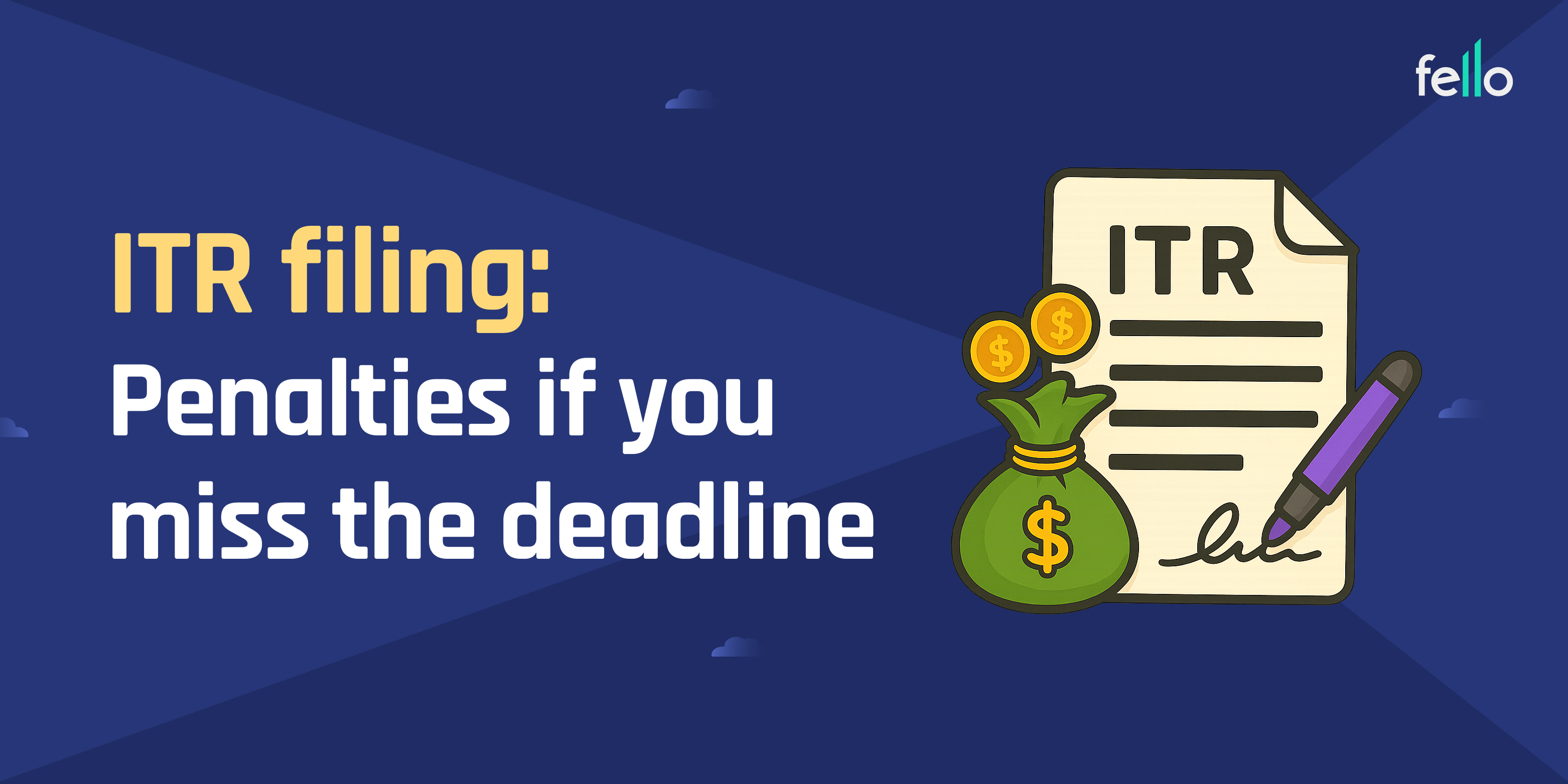Income Tax Return (ITR) filing is one of the most important financial responsibilities for every taxpayer in India. Filing within the due date ensures compliance, helps you avoid unnecessary penalties, and even makes you eligible for refunds on time. But what happens if you miss the deadline? In this blog, we’ll decode ITR filing: penalties if you miss the deadline, along with late fees, interest charges, and other consequences you should be aware of.
Why Timely ITR Filing Matters
Filing your ITR on or before the deadline:
- Avoids financial penalties and late fees.
- Helps you claim tax refunds quickly.
- Maintains a clean financial record, which is useful while applying for loans or visas.
- Keeps you compliant with the Income Tax Act and prevents legal consequences.
Missing the deadline doesn’t just mean paying extra, it can also block you from carrying forward certain tax benefits.
Penalties and Late Fees for Missing ITR Deadline
The Income Tax Department imposes penalties under Section 234F of the Income Tax Act. The amount you pay depends on your total income:
| Income Range | Penalty Amount (AY 2025–26) |
|---|---|
| Above ₹5 lakh | ₹5,000 late filing fee |
| Up to ₹5 lakh | ₹1,000 late filing fee |
| Below taxable limit | No penalty (but interest may still apply if tax is due) |
Interest Charges under Section 234A
Apart from the flat late fee, taxpayers also face interest charges under Section 234A:
- 1% per month (or part of a month) is levied on the outstanding tax amount until the ITR is filed.
- For example, if you owe ₹50,000 in taxes and file 3 months late, you’ll pay an extra ₹1,500 as interest.
This makes late filing significantly more expensive than just the penalty amount.
Loss of Carry-Forward Benefits
If you miss the deadline, you cannot carry forward certain losses to future years. This includes:
- Losses under the head Capital Gains (like loss in shares or property).
- Losses under Business and Profession.
Only losses under House Property can still be carried forward even if you miss the deadline. This is a huge drawback for investors and businesses.
Consequences Beyond Penalties
Apart from monetary fines, there are other consequences of missing the ITR deadline:
- Refund delays: Any refund you’re eligible for will only be processed after you file, often taking much longer.
- Legal action: In extreme cases of non-compliance, prosecution may be initiated, especially if large tax dues are involved.
- Loan/visa issues: Banks and foreign embassies often require recent ITR acknowledgments. A missed filing can delay your plans.
Can You Still File After the Deadline?
Yes, you can file a belated return (under Section 139(4)) until December 31 of the assessment year, but:
- You’ll still pay penalties and interest.
- You may lose out on carry-forward benefits.
From April 1, 2025 (for AY 2025–26), this means the last date to file a belated return will be December 31, 2025.
How to Avoid ITR Penalties
- Keep documents ready: Form 16, salary slips, TDS certificates, bank statements, and investment proofs.
- File right now: Tomorrow is the last date.
- Use e-filing platforms: The Income Tax e-filing website and authorized third-party apps simplify the process.
Conclusion
Missing the due date can cost you more than just late fees. From penalties under Section 234F to interest under Section 234A, refund delays, and loss of carry-forward benefits, the consequences are serious. Filing on time keeps your record clean and saves you money. Always remember, ITR filing: penalties if you miss the deadline are not worth the risk when timely filing is so simple.

